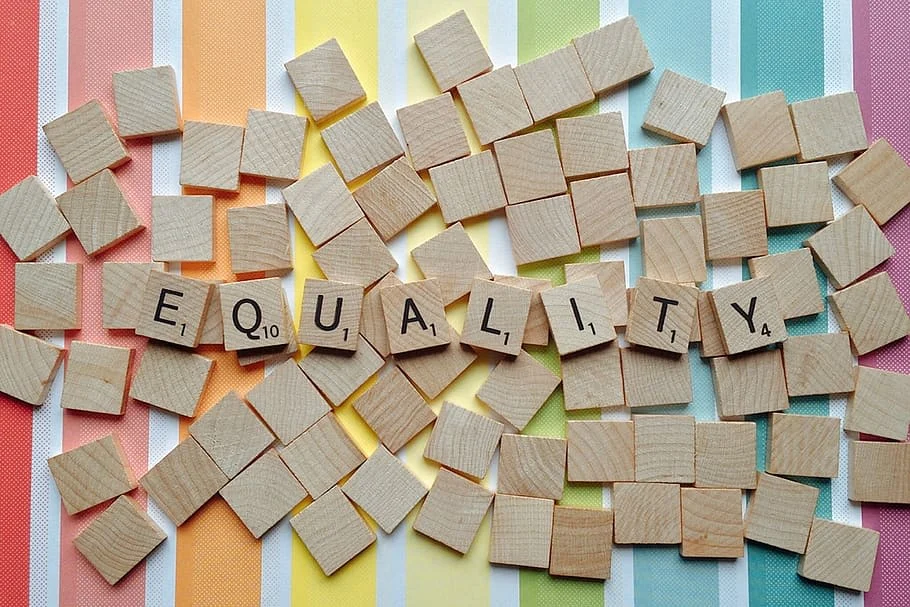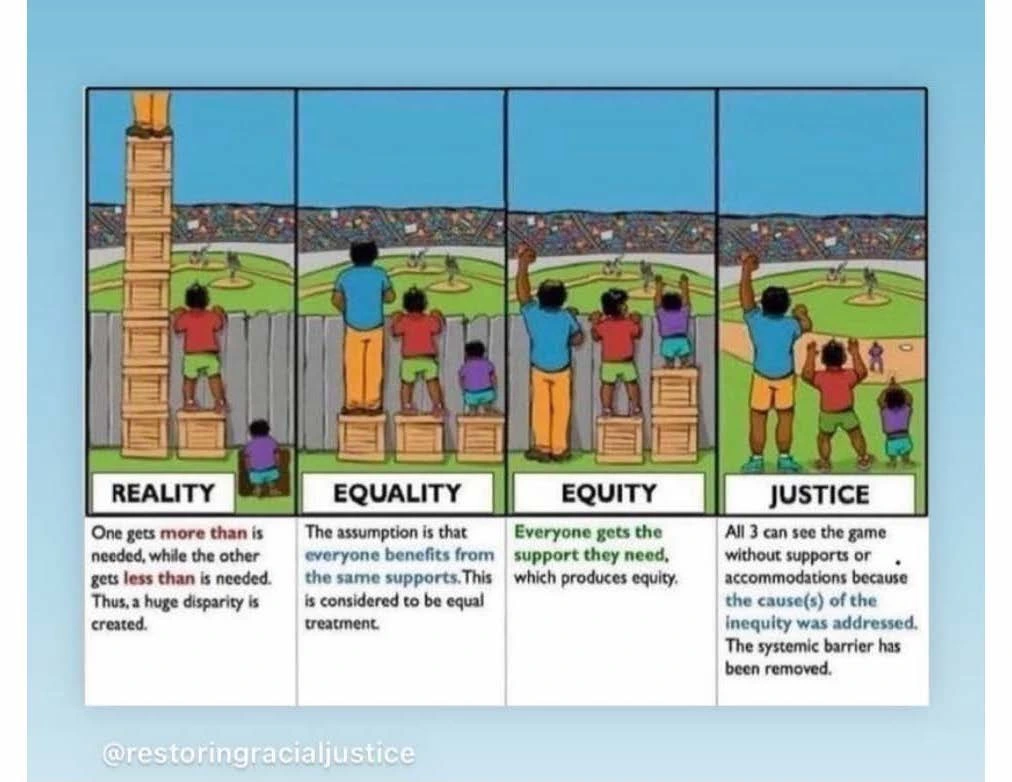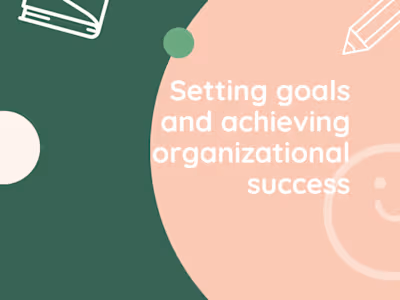Here's Why We Should Care More About Equity, Not Equality
Like this project
Posted Feb 9, 2024
Equality assumes that everyone starts at the same place. Well, what happens if that's not true?
Likes
0
Views
8
Here's Why We Should Care More About Equity, Not Equality

Equality is arguably the most misused and overused word. We often use this word to piece together different concepts and call for justice; when it comes to equality, we are asking for equal rights to concepts like humanity, worth, and belonging, but the actual practice of those things can only be achieved through equity and justice.
Equality as a fundamental concept that all lives are sacred and should be treated as such is true. However, equality in everyday practice assumes that everyone starts from the same place with the same barriers and requires the same help or support; therefore, it denotes that everyone should be treated equally. But treating everyone equally is not always fair.
How often, if ever, have you met someone exactly like you? Who has the exact needs and wants that you do? Who faces the same issues you face in the same way? Twins can’t even boast that type of equality, so imagine applying that concept to whole groups of people.
It may appear that striving toward equality is fair – but ask yourself this – is it equitable?
Providing a single solution or solution focused on a single profile can be problematic. The same goes for not providing a solution to some because others don’t need it.
Let’s break this down to an elementary level; imagine you were providing shoes to those who needed them. How would solving this dilemma look using equality versus equity?
Equality 101: To be fair, let’s give everyone a pair of shoes. And to make it equal, we will provide everyone, regardless of whether they need it or not, the same style and size shoes, because that is equality.
While you help those who happen to wear that shoe size, there are far more who still need shoes. In addition, resources have now been wasted, producing a product that only some can use.
Additionally, this leads to some having a surplus of shoes (while others still have none) because equality ensures everyone gets shoes, regardless of what they need. This is the risk of an equality-only lens; it doesn’t solve the issue and may even create other problems.
Equity 101: By finding out the barriers hindering people from getting shoes, the sizes each person needs, and providing the correct shoe size to everyone in need, equity ensures that everyone in need has the right shoe and fit. It also reduces the excess and hoarding of resources by not providing shoes to those with more than enough.
Justice 101: There’s a lot to unpack around justice as a framework, but what's important to note here is that even when practicing equity, justice should be the goal. In our shoe scenario, justice is when the conditions that lead to people not having the shoes they need in the first place are eradicated. When the systems that deprived people of what they need no longer exist, justice can thrive. To ensure fairness, sometimes justice even demands an unequal response.

This image by explains the difference between reality, equality, equity, and justice
Some questions we should be asking ourselves when faced with issues where equality and equity may be implemented are the following:
How do I practice equity ( what is fair, not necessarily what is equal) in my everyday life?
Where can I apply an equity lens to racial and social justice issues worldwide? What barriers are already in place that I should be acknowledging?
With all that said, equality has its place. Treating people less than or unworthy of basic human rights because of their racial or social identity is wrong. The important lesson is to remember that equity is often neglected despite being more actionable than equality. Equity is how we measure fairness. Equality is how we measure sameness, and justice is how we measure society’s moral and social condition.
In the pursuit of justice, equality falls short and perpetuates the same cycle of privilege of those who have versus those who don’t. On the other hand, equity steps up to the plate as the state, quality, or ideal of being just, impartial, and fair.
So next time you're speaking up, organizing, or advocating for what is fair, don’t forget to ask: Is it equitable?







